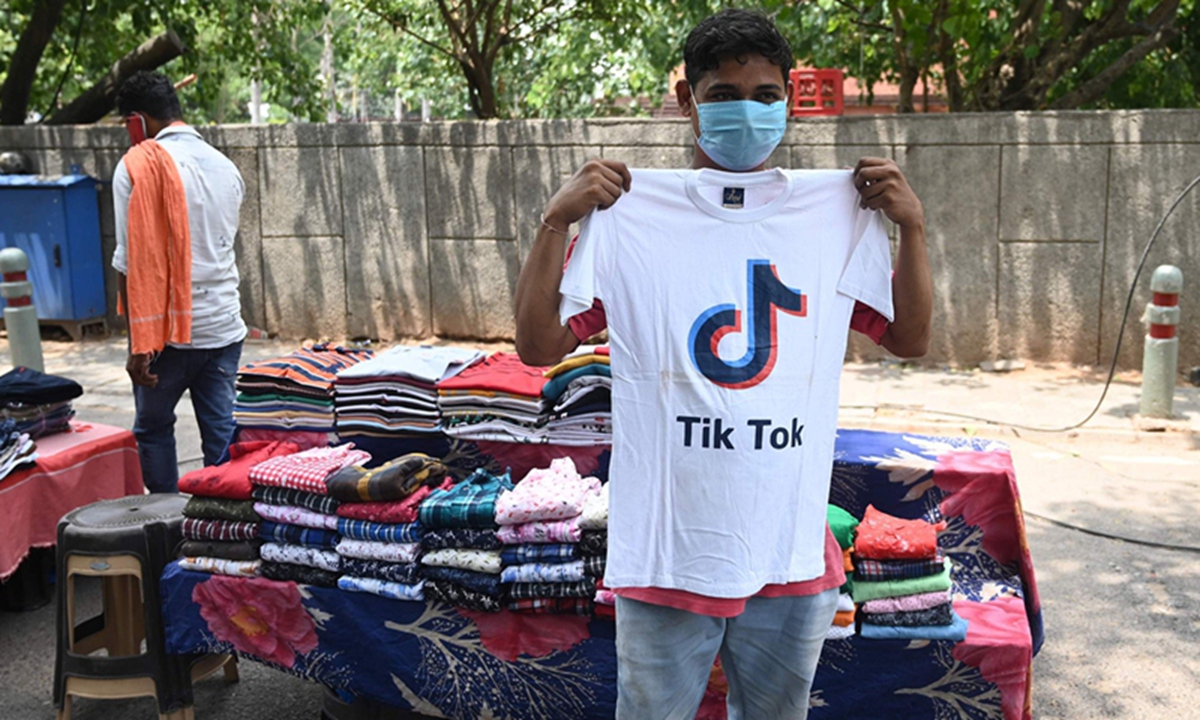India can't lure investors if it pursues protectionism
Source: Global Times Published: 2020/8/13 21:37:11

File photo
Chinese internet company ByteDance is engaging in early talks with Reliance Industries Limited for investment in Chinese social media app TikTok's business in India, tech website TechCrunch reported on Thursday.Given the importance and influence of Reliance Industries in India, the move is reportedly supposed to help ease the pressure TikTok faces from the Indian government. The news, if true, may also serve to underline how difficult it is for Chinese apps like TikTok to continue their business in the Indian market.
TikTok is just one of many Chinese internet companies facing crackdowns in India. In late June, the Indian government banned 59 Chinese apps, including TikTok, over so-called security and privacy threats. India has also reportedly drawn up a list of Chinese apps that will be under scrutiny for alleged violations of security or privacy rules. Moreover, the government has amended its general financial rules to exclude Chinese companies from taking part in its government procurement bidding. India has also tightened restrictions for foreign investment from China and some other countries in a bid to protect domestic firms and industries, according to media reports.
To a certain extent, all these moves reflect the rising anti-China nationalism and protectionism in India. And it is not hard to see that some of India's recent initiatives, such as "Make in India" and "Self-reliance India," also indicate certain protectionist tendencies.
However, there is no denying that the Modi government has been making concerted efforts to attract foreign investment. Take for instance its production-linked incentive scheme intended to lure global electronics manufacturers to produce in India. Since it would be difficult for the country to grow into an economic powerhouse or a manufacturing center by its own strength, it is totally understandable that India is pinning hopes on foreign capital and technology to inject new momentum into its own economic growth and facilitate its recovery after the coronavirus pandemic.
Yet, it should be noted that a necessary prerequisite for attracting more foreign investment is creating a favorable investment environment by undertaking further economic reform and opening-up measures, which apparently runs counter to the country's protectionism. Ambiguity between the two will cause confusion and uncertainty that will only backfire on India's economy. The country cannot advocate protectionism and promote foreign investment at the same time.
Thus India's political elites need to realize that they cannot have their cake and eat it, and a careful choice must be made regarding the country's future direction. Some in India may claim that it could explore its own way of development. There may be a third choice, but it could never be a solution if the country continues to consider both protectionism and foreign investment.
Posted in: GT VOICE